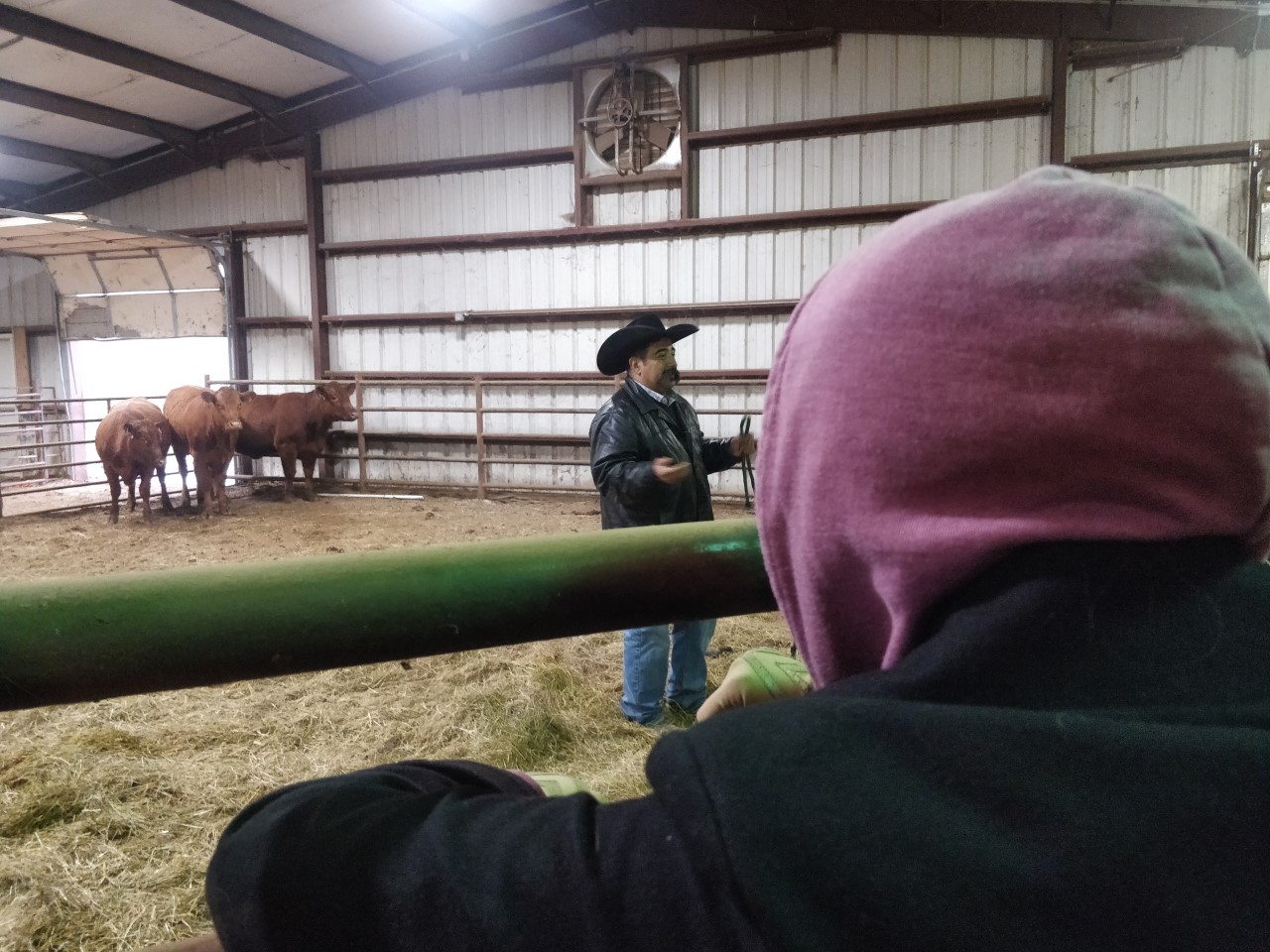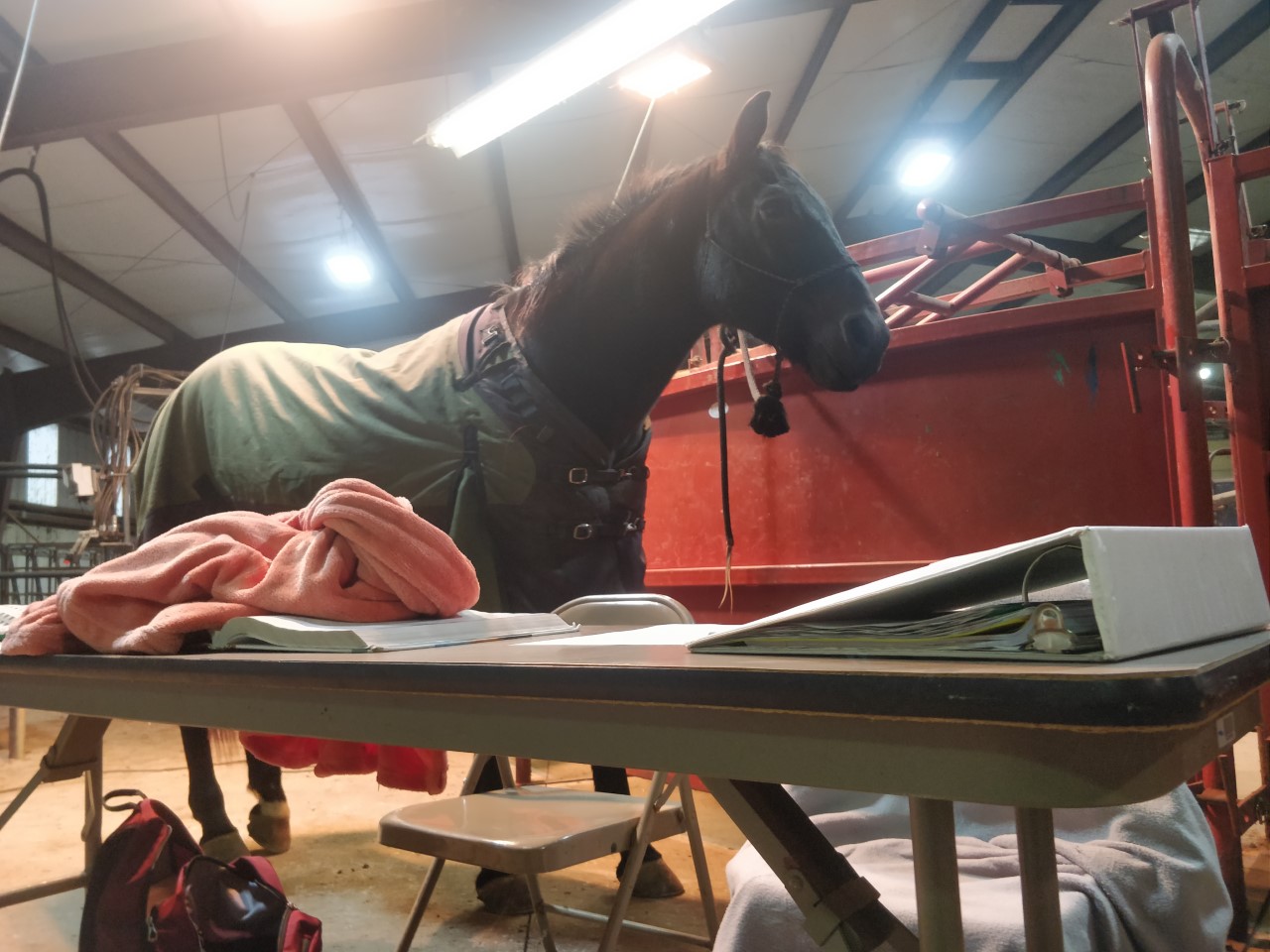By Glory Reitz
Editor-in-Chief
This feature story from the Sentry’s November 2020 podcast tells how Crowder’s agriculture classes adapted to the campus COVID-19 guidelines.
Transcript:
REITZ: Animal science class is in session at Crowder. But it’s not in a normal classroom. Jorge Zapata, agriculture instructor and division chair, says six different ag classes have been moved to the barn.
ZAPATA: Animal science typically is one of our largest classes, and when we were told about the social distancing measures that were taking place at the college, we tried to figure out how we could comply with that and still have 30 people in a classroom. Both my classes have 28 to 30 people in them, and so we needed space.
REITZ: Weather is getting colder – today, tempratures are in the low thirties, with drizzle and hail alternating all morning. Inside the barn, the aggies are at least dry, but the metal walls don’t provide a lot of insulation.
ZAPATA: Today’s a little chilly. But they all had hats, and coveralls and things like that.
REITZ: Tisha Richmond, a first year vet tech student, says the cold is something the Aggies are used to anyway.
RICHMOND: Oh, we just wear more layers. I mean, a lot of us come from a relatively farm background, we’ve all dealt with the cold before, we live in Missouri. Just wear more layers: coveralls, gloves, hats.
REITZ: And in the barn, everything can become a practical lesson, even freezing rain.
ZAPATA: Morning Haddie, how are you?
STUDENT: Cold.
ZAPATA: Is it cold?
STUDENT: Yeah, I can’t feel my fingers
ZAPATA: So, this is what we were talking about before as far as temperature regulation. Cold is not the problem. What’s the problem?
CLASS: The rain
ZAPATA: That wet. It’s draining every bit of energy out of those calves that are on the ground right now…
REITZ: The barn today has two horses, three red angus heifers getting ready to calve, and a stall full of sheep
ZAPATA: All the farm animals have made it into the barn right now, so, yes, that’s what it’s for.
REITZ: Zapata says the live animals make for a unique experience that studenthe ts are grateful to have. He leads today’s class while holding the lead rope of a horse.
ZAPATA: … that your end date is April. He is here just because he needs to see your eyeballs on him. He needs that stress, because, you know how his bubble is huge, right? And so, the more practice that we have of you staring at him and having that pressure on him – like you, you know how I hover over you when you take tests? And you hate it? You have to get used to pressure.
ZAPATA: They (students) love it actually, because if we need to do an example of a lecture and say “this is what I’m talking about in real life, then we’re able to do that immediately. I think they like the idea of just coming to the barn for class, it’s just, it’s kind of nifty.
REITZ: Richmond agrees.
RICHMOND: I definitely like it better in the barn. It’s kind of fun out here, we also get live animals and – ‘cause you can’t bring those into class.
REITZ: Although classes meeting in the barn offer great opportunities for students, Zapata worries that COVID-19 distancing guidelines will damage the experience students come out of college with.
ZAPATA: I think it affects all of us, not just ag. Just, the feel that we have for classes is a little bit different because we’re not piled ontop of each other. And in that, maybe there’s a little bit of community that’s lost.
REITZ: But Rebekah Pitts, another first year vet tech student, says her time in the barn for animal science is a welcome reprieve.
PITTS: You can space out and get along and not have the masks and the dividers and stuff. And so it kind of feels like a safe space
REITZ: Students like Pitts may have access to that reprieve for years to come. Zapata says that though the change of location was originally made to allow the classes to stay full-size, it’s become a valuable part of animal science.
ZAPATA: I think we mayS continue this, even after COVID. Because it is just a good experience for us to have access to animals, and to have class in a barn is unique.
REITZ: Reporting for Crowder Sentry News Network, I’m Glory Reitz.



Leave a Reply